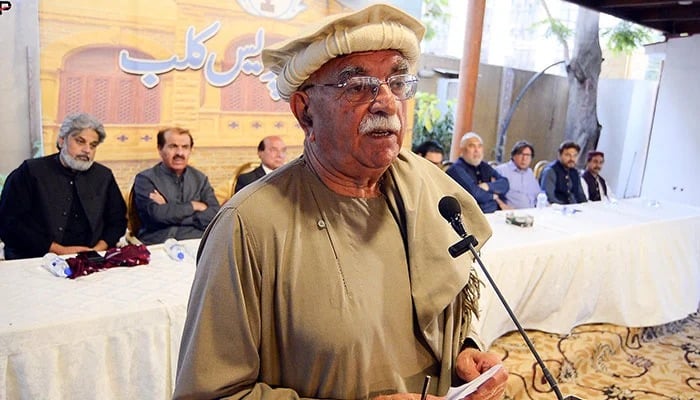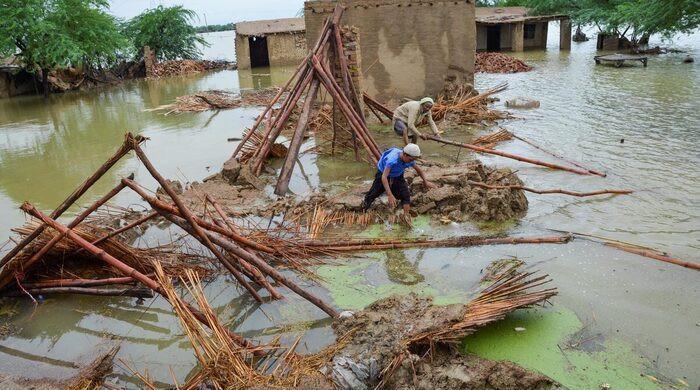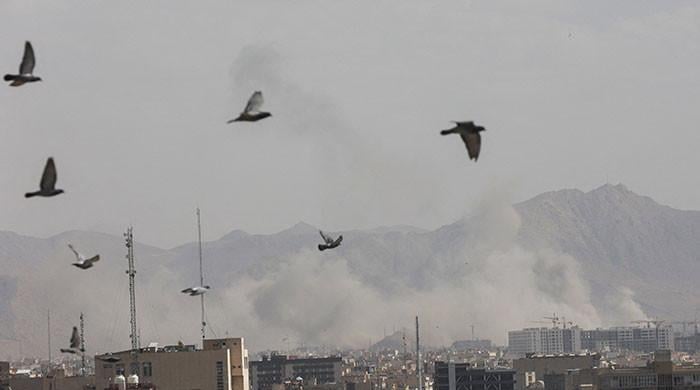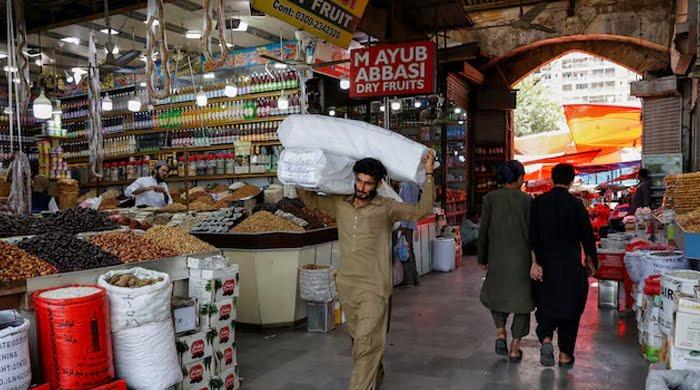Shrinking spaces and more
For much too long, we have waded through turbulent waters which have continued to become increasingly caustic
August 09, 2025

We live in an age and time when the canvas we play on is constantly expanding, taking in ever more daring perceptions and ideas. It is improbable to think that we shall ever recede into a phase which had imposed restrictions on human endeavours and pursuits for one regressive reason or the other.
But then, fear is an ever-present syndrome. In certain respects, it is intensifying further with time. It emanates from countless sources, some of which may be manageable, while others reside beyond such possibility. They have a femme fatale feeling about it which, under routine circumstances, causes distress and destruction. By some analyses, we may be passing through one such phase.
A sitting federal minister calls it the hybrid model. By its very nature, such a system could be built only when the boundaries of the constitution, rule of law and democracy are forced to recede giving way to power being vested exclusively in the hands of the executive who shall then, through an artificially contrived majority in numbers, monitor the process whereby people are appointed to positions in state institutions, thus destroying their independent stature.
This, inter alia, means that the entire operational mechanism of the state shall be contained within the grasp of an individual, or a set of individuals, who owe their positions to non-democratic contrivances.
It may well be that such a phase may help a certain set of people create an environment that suits their intentions and objectives. But the retinue of destruction that this may leave behind for future generations to bear resides beyond the bounds of logic and rationale.
Given the immediacy of such objectives, no one may pay enough attention to their calamitous aftermath, which could imperil the prospect of bringing them back within the constitutional framework. In fact, it may spiral beyond the boundaries of containment.
In such circumstances, the cardinal issue that would rock the brains is whether such a hybrid system would be able to sustain the challenges that it brings in its wake, encompassing the constraints imposed on the applicability and relevance of the constitution, rule of law and democracy.
Measured on a rational scale, such a fabrication will have a very short life span beyond which it will collapse and be dusted away. But the impact that it generates during its currency will be a legacy that will continue causing immeasurable damage to the state.
The question that arises is: shorn of the possibility of prolonged sustenance, why undertake such a project at all? Why should one not go by the established democratic way and win over people’s support for the fulfilment of a programme that some believe would bring benefit to the state?
Shakespeare’s words would fit in perfectly in tracing the cause of this attitude: “The fault, dear Brutus, is not in our stars, but in us…”.
I have gone over it repeatedly without comprehending the compulsions that would propel a recourse which may put the state back by years, maybe decades, while its destructive impact may linger even longer.
Notwithstanding the personal benefits that such an indulgence may accrue to some individuals, there is nothing in it that would catch the attention of anyone who has any familiarity with state management.
We have had such experiences in the past but have refused to learn from them to ensure that we don’t repeat the blunders. So, here we are totally consumed in misplaced eagerness to rerun the familiar course.
There have been numerous crisis points in the country, some of which have existed for decades with no remedy found. In its latest report, HRCP has warned of a “grave” human rights situation in Balochistan encompassing “continued enforced disappearances, shrinking civic space, erosion of provincial autonomy and unchecked impunity”.
These conditions, the Commission noted, “fuel public alienation and political instability”. It also highlighted the “undermining of public trust in democratic processes” and recommended “ensuring transparency, fairness and accountability” at all stages.
For much too long, we have waded through turbulent waters which have continued to become increasingly caustic. It is time to think of ways to arrest this deterioration and forge a culture of mutual trust and tolerance.
While policymakers may persist with a gravely flawed approach to save their depleting political fortunes, the indulgence could cause irreparable damage to an already tottering state structure, which instead of the three pillars that it stood on is left with a singular support base, which is that of the executive. This is getting perilously dangerous beyond verbal description.
Notwithstanding some naysayers, I have persistently pleaded for the initiation of a dialogue among all stakeholders to find a way for coexistence. The present fabrication, dubbed the hybrid system by its own proponents, has all but collapsed principally owing to it having effectively banished the space for disagreeing.
The excessive use of brutal state power to compel conformity has led to the creation of further dissident voices which plead for adopting a course of sanity in preference to one singularly devoted to compliance. The incumbent concoction may already have run its course, and it may well be prudent to pack it off.
In this background, and with increasing concern about the health of the state, sane voices are now being heard with enhanced vigour and greater persistence. After a two-day meeting of the leadership of Tehreek-e-Tahufaz-e-Ain-e-Pakistan (TTAP), it has proposed the convening of a Truth and Reconciliation Commission.
This would operate beyond the domain of reward or punishment and will be solely committed to unearthing the facts pertaining to the past over seven decades and placing them before the people of the country.
The key element for the success of such a Commission is voluntary confession of ‘truth’ by all those who have been at the helm through the past decades and the role each one of them may have played to the detriment of the interests of the people.
This requires character and integrity with a genuine realisation that grievous damage may have been inflicted upon the state through pursuing policies which were not enshrined by justice and fair play.
The march of democracy was repeatedly derailed, leading to the imposition of autocratic dispensations, each one of which put us back on the scale of constitutionalism. Let us not forget that an errant judiciary duly legitimised all such interludes by invoking the notorious ‘doctrine of necessity’ syndrome.
It is time to break this logjam and put the facts in the open for all to see. Let there be no saints and sages claiming impunity from law. Let them all be equal before the eyes of the people and the strictures of honour. Only that will carve an equitable path into the future.
The writer is a political and security strategist and the founder of the Regional Peace Institute. He is a former special assistant to former PM Imran Khan and heads the PTI’s policy think-tank. He tweets @RaoofHasan
Disclaimer: The viewpoints expressed in this piece are the writer's own and don't necessarily reflect Geo.tv's editorial policy.











